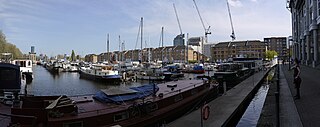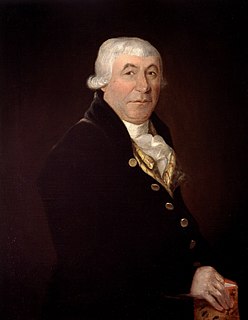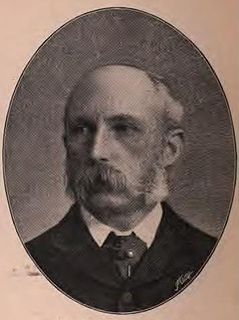Allan Gilmour Sr. (October 1775 – 4 March 1849) was a prominent Scottish-born lumber merchant and shipowner.
Born in 1775, Allan Gilmour Sr. was the son of Allan Gilmour and Elizabeth Pollok. He attended the Mearns parish school in the 1780s and early 1790s, and by 1795 ran a small timber business there. By 1802, he had moved to Glasgow and his trade now extended to the Baltic, Russia, and Norway. In 1804, he co-founded the Glasgow-based firm Pollok, Gilmour and Company, together with the brothers John Pollok and Arthur Pollok. Gilmour took charge of pursuing increased international trade for the business, making several trips to North America and Norway to open additional lines of trade. At its peak, and as a result of Gilmour's enterprises, Pollok, Gilmour & Company controlled one of the largest fleets of ships in the world, commanding over 100 vessels. Suffering from the Napoleonic blockade of Baltic timber, he quickly established a new, North American base for the company, sending his brother James Gilmour, and Alexander Rankin to the Miramichi River (New Brunswick, Canada) in 1812. Pollok, Gilmour and Company was soon the largest operator in the British North American timber market, with further branches established at Saint John (1822), Quebec (1828), Montreal (1829), Bathurst, N.B. (1832), and Dalhousie and Campbellton (1833). In 1837 a rift developed between Gilmour and the Pollok brothers. To resolve the dispute, effective leadership was transferred to Robert Rankin, the manager of the Saint John operation.

Glasgow is the most populous city in Scotland, and the third most populous city in the United Kingdom, as of the 2017 estimated city population of 621,020. Historically part of Lanarkshire, the city now forms the Glasgow City council area, one of the 32 council areas of Scotland; the local authority is Glasgow City Council. Glasgow is situated on the River Clyde in the country's West Central Lowlands. Inhabitants of the city are referred to as "Glaswegians" or "Weegies". It is the fourth most visited city in the UK. Glasgow is also known for the Glasgow patter, a distinct dialect of the Scots language that is noted for being difficult to understand by those from outside the city.
Pollok, Gilmour, and Company was a Glasgow-based timber-importing firm established in 1804 by Allan Gilmour, Sr and the brothers John Pollok and Arthur Pollok. The company soon became the leading British firm in the North American timber trade.
James Gilmour was a prominent Scottish-born entrepreneur, farmer, school trustee, justice of the peace, militia officer, and co-founder of both Douglastown, New Brunswick, and Gilmour, Rankin & Co.
After his retirement, his health soon declined. He suffered a paralytic stroke in 1849. He died later in the same year leaving most of his property, to the sons of his brother James [1]










